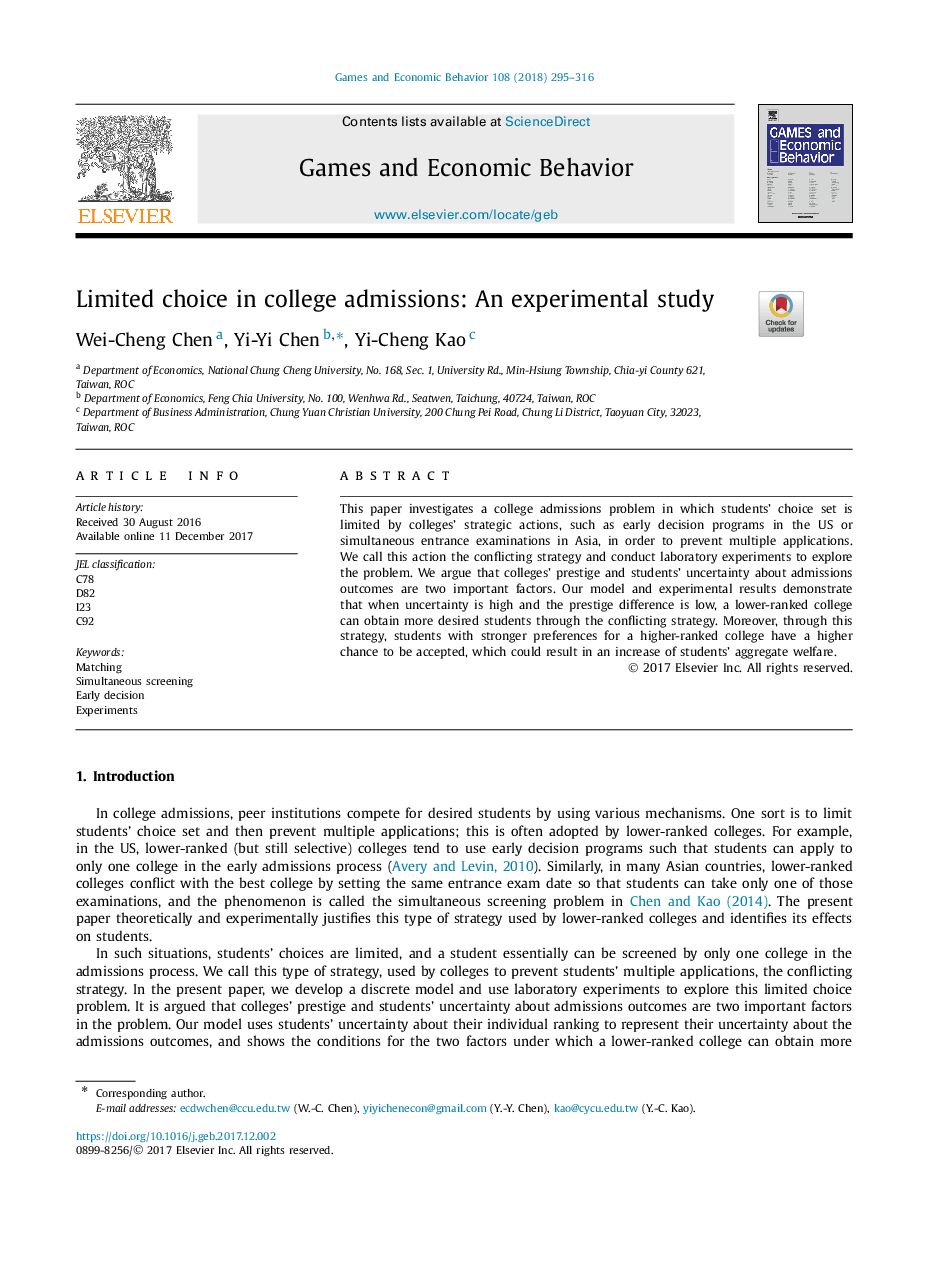| Article ID | Journal | Published Year | Pages | File Type |
|---|---|---|---|---|
| 7353062 | Games and Economic Behavior | 2018 | 22 Pages |
Abstract
This paper investigates a college admissions problem in which students' choice set is limited by colleges' strategic actions, such as early decision programs in the US or simultaneous entrance examinations in Asia, in order to prevent multiple applications. We call this action the conflicting strategy and conduct laboratory experiments to explore the problem. We argue that colleges' prestige and students' uncertainty about admissions outcomes are two important factors. Our model and experimental results demonstrate that when uncertainty is high and the prestige difference is low, a lower-ranked college can obtain more desired students through the conflicting strategy. Moreover, through this strategy, students with stronger preferences for a higher-ranked college have a higher chance to be accepted, which could result in an increase of students' aggregate welfare.
Related Topics
Social Sciences and Humanities
Economics, Econometrics and Finance
Economics and Econometrics
Authors
Wei-Cheng Chen, Yi-Yi Chen, Yi-Cheng Kao,
